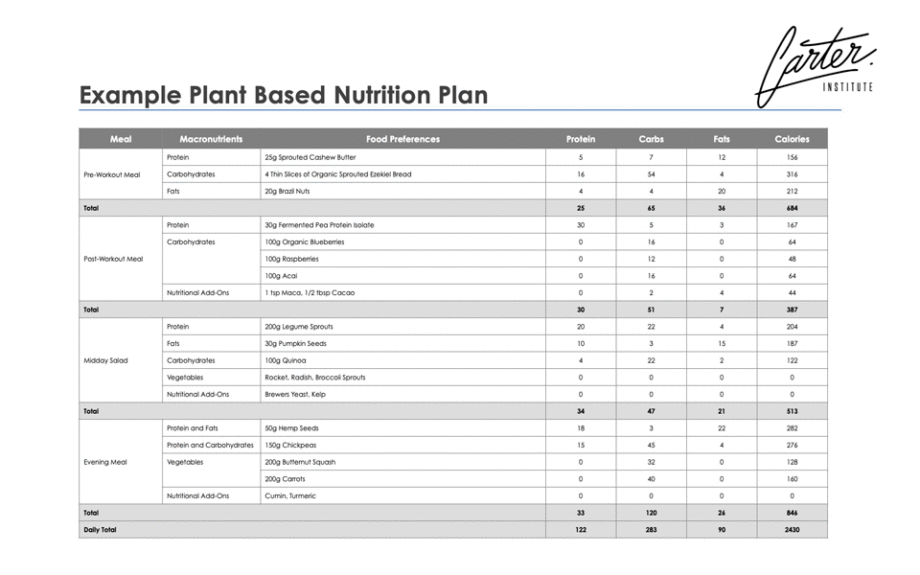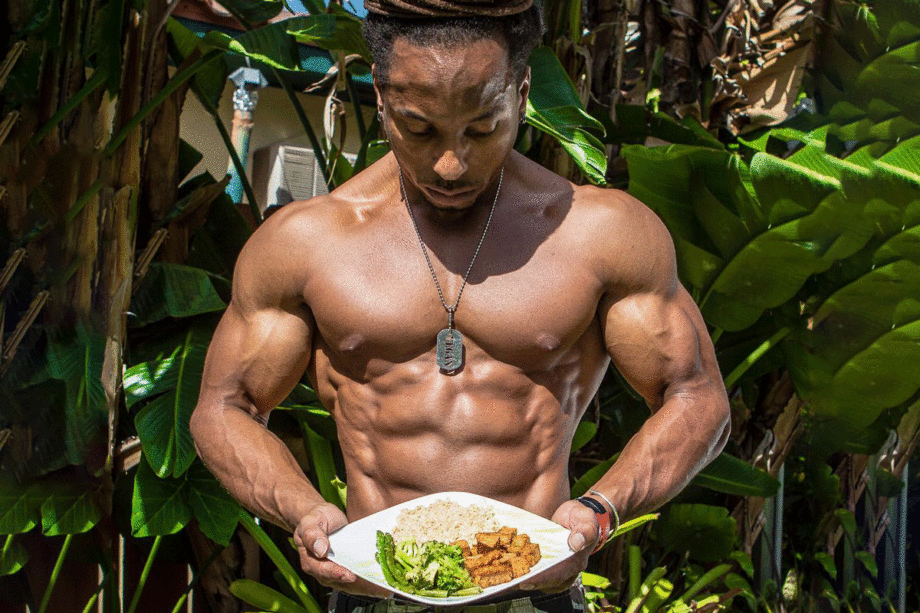The world is becoming a more conscious place with each passing year. Whether it be large-scale companies cutting down on their carbon emissions, families understanding the difference recycling can make, or individuals choosing to cut down – either partially or entirely – on their reliance on animals for their diet, there is hope on the horizon on Mother Earth.
That last part is especially true. You'll now be hard pressed to find any town or suburb that doesn't offer some sort of vegan food option for the conscious consumer. In Australia's Byron Bay, for example, you're almost made to feel like an outcast if you choose to consume meat. And, perhaps surprisingly, even America is making the effort to switch, with Plant Proteins claiming some 6 per cent of the country has gone vegan.
However, for those looking to build muscle, the general consensus has always suggested we need to consume large quantities of food, encompassing good-quality protein. This is far easier to find in lean meats such as beef, turkey, kangaroo and chicken. So, what if you choose to go vegan yet want to stay strong? Is it possible?
We've already seen how ultra-marathon runner Rich Roll has managed to keep himself in tip top shape on a vegan diet, despite being middle-aged. But we're talking about real strength here, the bodybuilder type. Can these athletes obtain the results they crave on a diet of fruits, vegetables and carbohydrates?
One man who says it most-definitely is possible is Jake Carter, a fitness coach who has immersed himself in research and reading to increase his knowledge on all things nutrition, mindset, body composition and strength & conditioning, so that he can provide trusted, reliable advice and information.
So if you were a doubter, and laughed at anyone who said they were vegan, yet wanted to lift big, listen up.
Jake admits that plant-based diets naturally lack the nutrients required to make serious gains. But that's not to say you can't make up for this deficiency with the help of supplements and choosing the right foods.
"When discussing a plant-based diet, it is largely known that such a regimented diet can lead to a short-fall of nutrients along with a compromise to health."
One of the most important nutrients you'll need to become accustomed with is creatine. "Creatine is a nutrient which is abundant in red meat, but deficit in most plant-based foods", says Jake. However, he adds, "A study showed that vegetations supplementing creatine experienced an increase of 2.4kg in lean tissue mass, versus an increase of only 1.9kg for non-vegetarians on creatine." Score 1 for the vegetarians.
"Vegetarian subjects who supplemented with creatine demonstrated an increase in 1 rep-max bench press from 85kg to 101kg, which is greater than the subjects in the placebo group, who increased from 76.4kg to 85kg."
As we mentioned earlier, protein is vital for building muscle, something you don't readily find in plant-based foods. "Typically speaking, plant-based protein sources have less leucine (between 6-8%), when compared with animal-based protein sources (>10%)," Jake relates.
"Leucine is an amino acid derived from protein, which is the building block that initiates functions throughout the body."
"It is the 'on-switch' which helps the body utilise protein, and it's often documented that 2.3g-3g is required to optimise muscle protein synthesis."
To counteract the lower protein levels compared with animal-based sources, Jake suggests vegans and vegetarians consume foods such as adzuki beans, lentils, navy beans and mung beans. Around 1.5g of each of these can make up for the natural lack of essential amino acids.
DMARGE wanted to find out if there were, however, any inherent risks with going plant-based – because, as we've seen before, just because it's vegan, doesn't mean it's naturally good for you – and with access to a reliable source of information, posed the question to Jake.
He admits that yes, there are some possible risks to be aware of. These include:
- Nutrient deficiencies ranging from creatine, choline, amino acids (carnitine, carnosine, taurine), specific vitamins (retinol, B12), and minerals (iron and zinc)
- Studies have shown there is a 30% higher risk of bone fractures compared to meat-eaters, although this can be overcome with an increase in calcium intake of around 525mg per day
- Low availability of complete-profile proteins which are required to repair and function optimally from the body
- Increased consumption of possible 'anti-nutrients' such as oxalates, physic acid, lectins, wheat and gluten. 'Anti-nutrients' is a loose term, as some may provide a small but notable health benefit to specific groups of people.
- An increase of fibre intake – although, while Jake and industry professionals such as Max Lugavere relate too much fibre can be potentially damaging, Jake refers to several studies that show no correlation between high fibre and potentially fatal side effects such as colorectal cancer and constipation.
We also wanted to know if taking supplements could be considered 'healthy', or if those on plant-based diets had no other choice but to take them because of the natural lack of nutrients in their food.
Jake says "there is a discussion of whether taking supplements to overcome the deficiencies from following dietary behaviour is deemed unhealthy or not."
"Unfortunately, due to the modern-day farming practices, the nutrient content available is dramatically falling in which deficiencies are becoming stronger and stronger across the board, despite the diet."
"Which, when following a strict and selective diet, places even more stress on the quality of the food, whilst also requiring a greater level of accuracy towards food selection to ensure key nutrients are consumed."
To explain what that food selection would look like, Jake provided DMARGE with an example meal plan for someone on a plant-based (vegan) diet, which supports hypertrophy for a 70kg person, and "with a focus on real foods as opposed to reliance on different protein powders."

Jake adds, "The plant-based diet provides a very selfless approach to the eco-system when it comes to the wellbeing of animals, and despite an array of health consequences being at risk when adhering to the regime, it does not necessarily outweigh this factor."
"This is dependent purely on the individual's ethical and moral lens."
Read Next
- Joe Rogan Kickstarts Controversy With ‘Miserable’ Vegan Guest Revelation
- If You Want Bigger Muscles, You'll Need To Eat These Foods
Subscribe to the DMARGE newsletter
Follow DMARGE on Instagram
Follow DMARGE on Facebook
The post It’s Still Possible To Get Ripped On A Plant Based Diet. Here’s How appeared first on DMARGE.
from DMARGE https://ift.tt/3ebugG4








0 comments:
Post a Comment